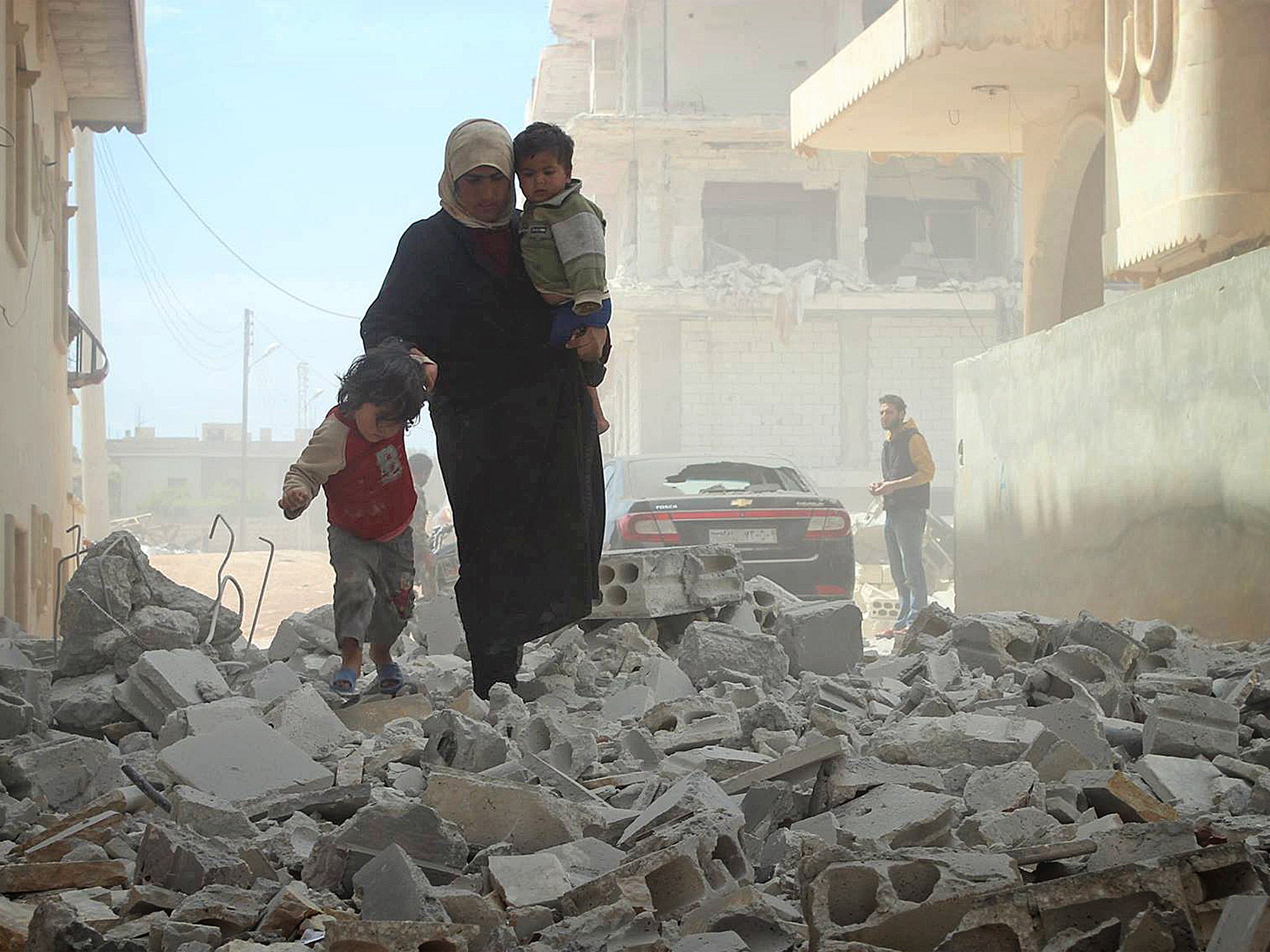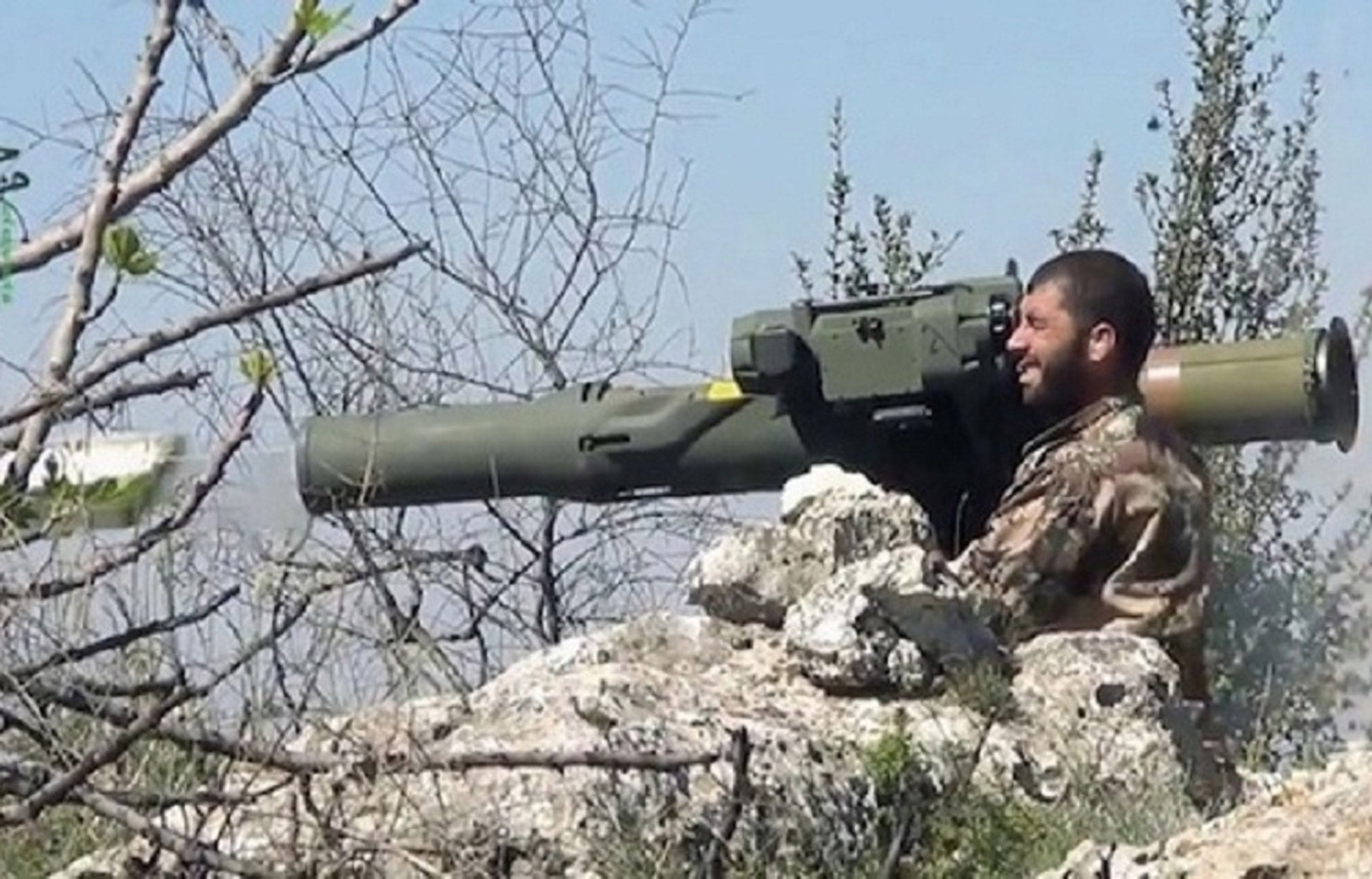Syria conflict: A shift for fading insurgency as foreign backers look to reverse months of military defeats at the hands of government soldiers
The removal of Saudi Arabia's intelligence chief may signal an effort to reorganise the opposition to President Bashar al-Assad

Your support helps us to tell the story
This election is still a dead heat, according to most polls. In a fight with such wafer-thin margins, we need reporters on the ground talking to the people Trump and Harris are courting. Your support allows us to keep sending journalists to the story.
The Independent is trusted by 27 million Americans from across the entire political spectrum every month. Unlike many other quality news outlets, we choose not to lock you out of our reporting and analysis with paywalls. But quality journalism must still be paid for.
Help us keep bring these critical stories to light. Your support makes all the difference.
In the wake of a series of battlefield defeats for the Syrian rebels over the past few months, there are signs that the opposition’s foreign backers are trying to reverse the tide and salvage what is left of the waning insurgency.
The removal of Saudi Arabia’s intelligence chief, Prince Bandar bin Sultan, the architect of Riyadh’s efforts to overthrow the Syrian government over the last three years, shows frustration within Saudi Arabia – one of the biggest backers of the rebels – at the failure of his policies.
The royal decree announcing the removal of Prince Bandar, for 22 years the highly influential Saudi ambassador in Washington, said that he had stepped down at his own request and was being replaced in the job he has held since 2012 by his deputy General Youssef al-Idrissi as “head of general intelligence.”
Western experts on Saudi Arabia had variously reported that Prince Bandar is genuinely ill or has been discredited by the failure of Syrian rebels to make headway against President Bashar al-Assad. What is clear is that his policy of funding and supplying the rebels fighting against Assad has failed to have a meaningful impact.
The uncertainty about developments in Riyadh shows that few outsiders know what is happening in the upper ranks of the Saudi royal family as it prepares the ground for a smooth succession to King Abdullah bin Abdulaziz who is believed to be aged about 90.
While Syria remains at the top of Saudi Arabia’s list of priorities, there have been many distractions over the past year that may have detracted from the effort in Syria. It has been feeling under threat from turmoil across the region since the Arab uprisings of 2011. It faces hostile governments in Syria, Iran and Iraq with the Iraqi Prime Minister Nouri al-Maliki recently blaming Saudi Arabia and Qatar for funding making terror attacks in his country.
It is unpopular in Yemen which has long resented its northern neighbour, which has been deporting tens of thousands of Yemeni workers from the Kingdom. It is also at loggerheads with Qatar, from which it has withdrawn its ambassador, and it is critical of Oman’s friendly relationship with Iran.
The Saudi government has been clamping down on all signs of domestic dissent, and in February made it a serious offence – to be punished with sentences of three to 20 years – for Saudis to go to fight abroad as jihadists. Some 2,500 Saudi jihadists are estimated to be in Syria, some in leadership roles in groups like the al-Qa’i da-affiliate Jabhat al-Nusra.
The government is targeting almost all types of political activity by the Muslim Brotherhood which it has declared a terrorist organisation, as well as by Shia activists, liberal reformers and civil rights advocates, in what one activist was quoted as saying was an “undeclared state of emergency”. New decrees define terrorist crimes as any act that “disturbs public order, shakes the security of society, or subjects its national unity to danger, or obstructs the primary system of rule or harms the reputation of the state”.
Perhaps the most important foundation for the support of Syria’s rebels and preserving the status quo in Saudi Arabia is its close alliance with the US. This has come under strain because of the refusal of the US to launch a military assault to overthrow President Assad last August when he is alleged to have used chemical weapons against his own people in Damascus.
Prince Bandar was particularly vocal in criticising the US administration while the US Secretary of State John Kerry privately expressed anger at Prince Bandar’s support for al-Qa’ida-type groups in Syria.
A two hour meeting between President Obama and King Abdullah in Saudi Arabia on 28 March, the first since 2009, did not warm up relations between the two countries. The Americans and Saudis speak of increasing aid to Syrian rebel groups hostile both to President Assad and to al-Qa’ida, but these movements, in so far as they exist, are very weak.
The US refuses to supply Manpad shoulder-fired ground-to-air missiles on the grounds that they might fall into the hands of jihadist fighters.
Some American-made anti-tank missiles have been seen in the hands of rebels in northern and southern Syria in recent days, going by on-line videos. It is unclear if these BGM-71 TOW anti-tank rockets shown in the videos were supplied directly by the US or via a US ally such as Saudi Arabia.

A Syrian rebel activist in south-east Turkey, who identified himself as Samer Muhammad, told Reuters news agency that a small moderate rebel group called Harakat Hazm received 10 anti-tank missiles from the US earlier this month near Aleppo and Idlib, two cities torn by heavy fighting near the northern border with Turkey. He said that Harakat Hazm had launched five of those rockets to destroy four tanks and win a battle in the Idlib suburbs of Babulin and Salheiya, and this was the first time American arms had figured in fighting in Syria.
The resignation of Prince Bandar together with the arrival of US-made weapons in Syria for the first time may signal an effort by rebel backers to reorganise the opposition. But it will take more than a few anti-tank rockets – or even anti-craft missiles – to give the divided factions of the opposition superiority in the battle for Syria.
Syrian government forces have recently been wiping out the last rebel strongholds along the border with Lebanon while the jihadist Islamic State of Iraq and the Levant continues to fight an intra-rebel civil war with other factions.
As if to reinforce that point, it was reported today that Syrian army troops entered rebel-held neighbourhoods of the central city of Homs after laying siege to the districts for nearly two years. Government troops entered areas of the Old City in Homs that had been under rebel control throughout the siege.
“They have entered into one area, Wadi al-Sayeh, which lies between Juret al-Shiyah and the Old City,” said Abu Bilal, an activist trapped inside the blockade, who spoke to AFP news agency.
Subscribe to Independent Premium to bookmark this article
Want to bookmark your favourite articles and stories to read or reference later? Start your Independent Premium subscription today.
Join our commenting forum
Join thought-provoking conversations, follow other Independent readers and see their replies
Comments